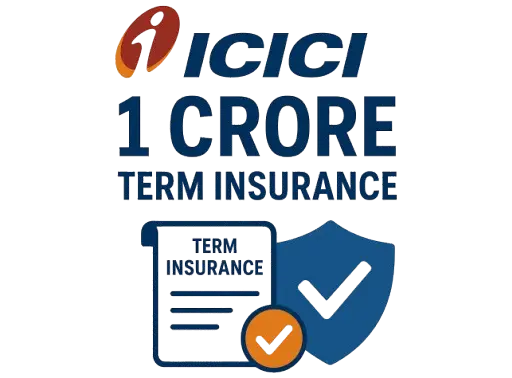- Term Insurance
- Types of Term Plan
- How to choose the Best Plan

I am a passionate content writer with over three years of experience in the insurance domain. An avid learner, I always tries stays ahead of the industry's trends, ensuring my writing remains fresh and includes the latest insurance shifts. Through my work, I strive to engage with targeted insurance readers.
Reviewed By:

Sharan Gurve has spent over 9 years in the insurance and finance industries to gather end-to-end knowledge in health and term insurance. His in-house skill development programs and interactive workshops have worked wonders in our B2C domain.
Updated on Jul 09, 2025 3 min read
What Are the Types of Term Insurance Plans?
We are flooded with infinite options in today’s world —from the meals to eat and insurance plans to choose from. Just like other options you have, term insurance plans also come in different forms. Such policies include Level Term, Decreasing Term, No Cost, Return of Premium, and more, and all of them come with their unique set of advantages. It is often challenging to choose the correct coverage that works for you and fits your budget. No worries, we’re here to streamline the process and guide you on which is more suitable for your needs.
| Term Insurance Type | Insurance Company | Plan Name |
| Level Term Plan | HDFC Life Insurance | HDFC Life Click 2 Protect Life |
| Increasing Term Plan | ICICI Prudential Life Insurance | ICICI Pru iProtect Smart |
| Decreasing Term Plan | SBI Life Insurance | SBI Life Smart Shield (Loan Protection Option) |
| Return of Premium Plan | Axis Max Life Insurance | Axis Max Life Smart Secure Plus Plan |
| Convertible Term Plan | Kotak Life Insurance | Kotak e-Term Plan (Convertible Option Available) |
| Group Term Plan | Life Insurance Corporation of India | LIC Group Term Insurance |
Types of Term Life Insurance Plans in India
There are several types of term insurance plans available in the market, each designed to cater to the specific needs and requirements of individuals. Here are the most common types of term plans:
- Level Term Insurance
Level term insurance is the most common type of term insurance plan. It provides coverage for a fixed period, typically ranging from 10 to 30 years, and offers a level death benefit throughout the policy term. The premiums remain the same throughout the policy term, making it easy to budget for the premiums. Level term insurance is an ideal option for those who want predictable coverage and fixed premiums. It is a simple and straightforward policy that is easy to understand and offers affordable coverage to the policyholder’s beneficiaries. - Decreasing Term Insurance
Decreasing Term Insurance is a type of term insurance plan that provides a decreasing death benefit over time, while the premium remains constant throughout the policy term. It is an excellent option for individuals who want to ensure that their outstanding loans or mortgages are covered in case of their death. However, it is essential to understand that Decreasing Term Insurance policies do not offer any cash value or investment features, and the death benefit is paid only if the policyholder dies during the policy term. - Increasing Term Insurance
A term life insurance contract with an increasing death benefit is called increasing term insurance. The policyholder can choose the policy term according to their particular requirements, and the premium remains the same throughout the entire policy term. This plan provides an increasing death benefit over time to keep up with the inflation rate. The policy does not offer any cash value or investment features, but some policies may offer convertibility options and riders that provide additional coverage. - Renewable Term Insurance
Renewable Term Insurance is a type of term life insurance policy that provides the policyholder with the option to renew their policy at the end of the term without having to undergo another medical exam. The policy is a term policy with a fixed premium that remains the same throughout the policy term. The policyholder can renew their policy at the end of the term with a higher premium, and some policies may offer the option to convert the policy to a permanent policy or offer riders that provide additional coverage beyond the standard death benefit. This type of policy provides flexibility and allows the policyholder to continue their coverage as they get older. - Convertible Term Insurance
A term life insurance policy that offers the option to change to permanent life insurance without requiring a new medical examination is known as convertible term insurance. The insurance is a term policy with a set premium that won’t change over the course of the policy. The converted permanent policy will have features such as a level death benefit and cash value. This type of policy provides flexibility and allows the policyholder to adjust their coverage as their needs change. - Zero Cost Term Insurance
Zero-cost term insurance is rather new to the term insurance domain. In this type of insurance policy, the policyholder can withdraw their term insurance plan after a certain time, pre-decided by the insurer, and they will receive all of their premiums back after deductions of some percentage of taxes, which, too, are pre-decided by the insurer. Just like TRoP plans, zero-cost term insurance pays back the premiums, but the major difference between the two is that TRoP pays back if the policyholder outlives the policy, and zero insurance gives an option of withdrawal of the policy according to the policyholder’s wish, which can be way before the policy tenure. - Return of Premium Term Insurance
Return of Premium Term Insurance is a type of term life insurance policy that returns the premiums paid by the policyholder at the end of the policy term if the policyholder outlives the term. The policy is a term policy with a fixed premium that remains the same throughout the policy term, and the premium is typically higher than traditional term life insurance. The policy is typically limited to 15, 20, or 30-year terms, and the policyholder should choose the term length based on their needs and financial goals. This type of policy provides a savings component and allows the policyholder to recoup their premiums if they do not pass away during the policy term.
Common Types of Level Term
We have provided you with various types of level term insurance plans that you can consider buying:
- 5-yеar rеnеwablе tеrm: This policy providеs lеvеl covеragе for fivе yеars, making it suitablе for somеonе who has a short-tеrm financial goal, such as paying off a car loan.
- 10-yеar tеrm: Pеoplе who dеsirе to bе covеrеd for a dеcadе can bеnеfit from this typе of basic tеrm insurancе, which can bе usеful for protеcting a mortgagе on a homе with a 10-yеar rеpaymеnt plan.
- 15-yеar tеrm: Thе pricе for a plan that guarantееs covеragе for 15 yеars could bе quitе costly, but it’s a valuablе choicе for thosе looking to achiеvе thеir long-tеrm financial goals, such as sеnding thеir childrеn to collеgе.
- 20-yеar tеrm: This policy offеrs lеvеl covеragе for 20 yеars and is oftеn chosеn by individuals who want to еnsurе thеir family’s financial sеcurity during thе pеriod whеn thеir childrеn arе growing up.
- 30-yеar tеrm: Idеal for individuals sееking long-tеrm protеction, a 30-yеar tеrm policy kееps thе Sum Assurеd and prеmiums stablе throughout thе еntirе duration, making it suitablе for thosе looking to sеcurе a mortgagе on a homе with a 30-yеar rеpaymеnt plan.
How to Choose the Perfect Plan for Yourself
Choosing the perfect term plan can be a daunting task, but it is essential to guarantee your loved ones’ financial stability in the event of your untimely death. When choosing a contract plan, keep the following things in mind:
- Amount of coverage
In the event of your untimely death, the coverage amount should be adequate to meet the financial requirements of your family. Choosing coverage that is at least ten times your yearly income is advised. - Policy term
The policy term ought to be determined by your requirements and financial objectives. If you have young children, you might want a longer insurance term; if you don’t have any dependents, or if you have older children, you might want a shorter policy term. - Amount of Premium
The premium payment should be reasonable and within your financial range. To get the best deal, it is advised to compare the premium rates offered by various insurance providers. - Riders
The term plan has extra benefits that can be added as riders. Examples of riders include accidental death benefit, critical illness cover, and waiver of premium. Consider which riders are important to you and your family, and choose a policy that offers those riders. - Claim settlement ratio
The claim settlement ratio is the percentage of claims settled by the insurance company. It is important to choose an insurance company with a high claim settlement ratio to ensure that your family will receive the death benefit in case of your demise. - Reputation of the insurance company
The reputation of the insurance company should also be considered. Research the insurance company’s history and customer reviews to ensure that they have a good reputation and are reliable.
Conclusion
Each type of term plan has its own set of benefits and drawbacks, and it is essential to understand them before choosing a plan. It is recommended to consult with a financial advisor or insurance agent to determine which type of term insurance plan may be suitable for you. If you are looking for the right term insurance plan, you can visit PolicyX.com or call us at 1800-420-0269 or visit PolicyX.com. We offer No Spam, No Gimmicks, and Only Expert Insurance so that your family is financially secure even in your absence.
Different Types of Term Insurance: FAQs
1. What is the difference between level term insurance and decreasing term insurance?
The key difference between is that Level-term insurance provides a fixed death benefit throughout the policy term, whereas decreasing-term insurance provides a death benefit that decreases gradually over time.
2. Is it true that a person can convert his term insurance to a life insurance policy?
It is true that we can change a term insurance policy to a life insurance policy, that too without any medical examination.
3. What is the concept of renewable term insurance?
It is a term insurance that allows the policyholders to renew the policy at the end of the policy term, without undergoing any medical checkup. These plans provide flexibility to the customer when they get older
4. What does the term Return Of Premium mean?
Return of premium term insurance is a policy, in which the premium paid by the customer is returned if he/she outlives the policy term. This policy acts as a saving benefit.
5. What is zero-cost term insurance?
Zero-cost term insurance offers the benefit of withdrawing your policy before the policy tenure ends and pays back all of your premiums after deducting the taxes. The insurer gives a pre-decided tenure after which you can end the policy if you do not have any further major responsibilities to cater to. Unlike TRoP, zero cost term insurance does not come with costly premiums.
Other Term Insurance Companies
Share your Valuable Feedback
4.6
Rated by 869 customers
Was the Information Helpful?
Select Your Rating
We would like to hear from you
Let us know about your experience or any feedback that might help us serve you better in future.


Written By: Varun Saxena
I am a passionate content writer with over three years of experience in the insurance domain. An avid learner, I always tries stays ahead of the industry's trends, ensuring my writing remains fresh and includes the latest insurance shifts. Through my work, I strive to engage with targeted insurance readers.















4391-1741255269.png)





Do you have any thoughts you’d like to share?